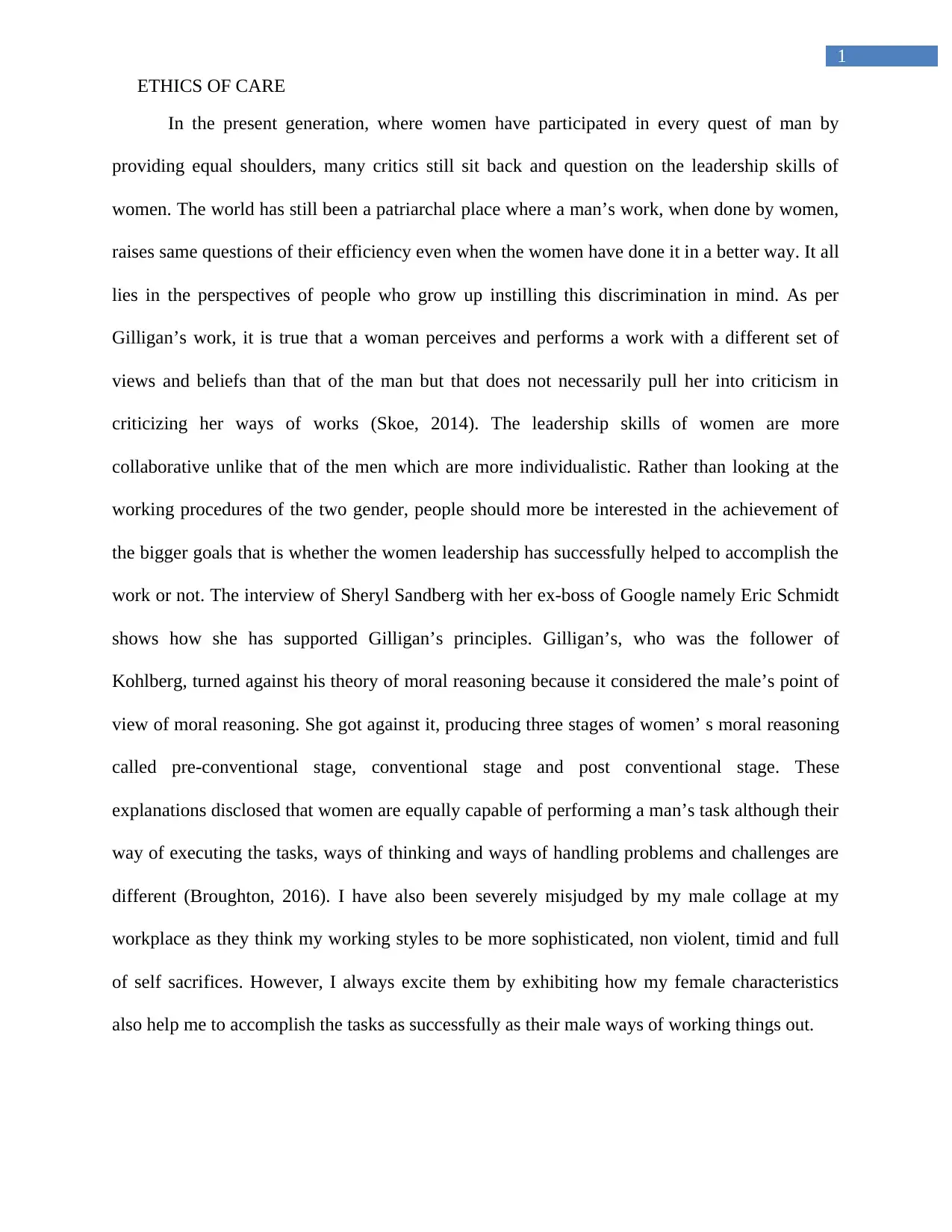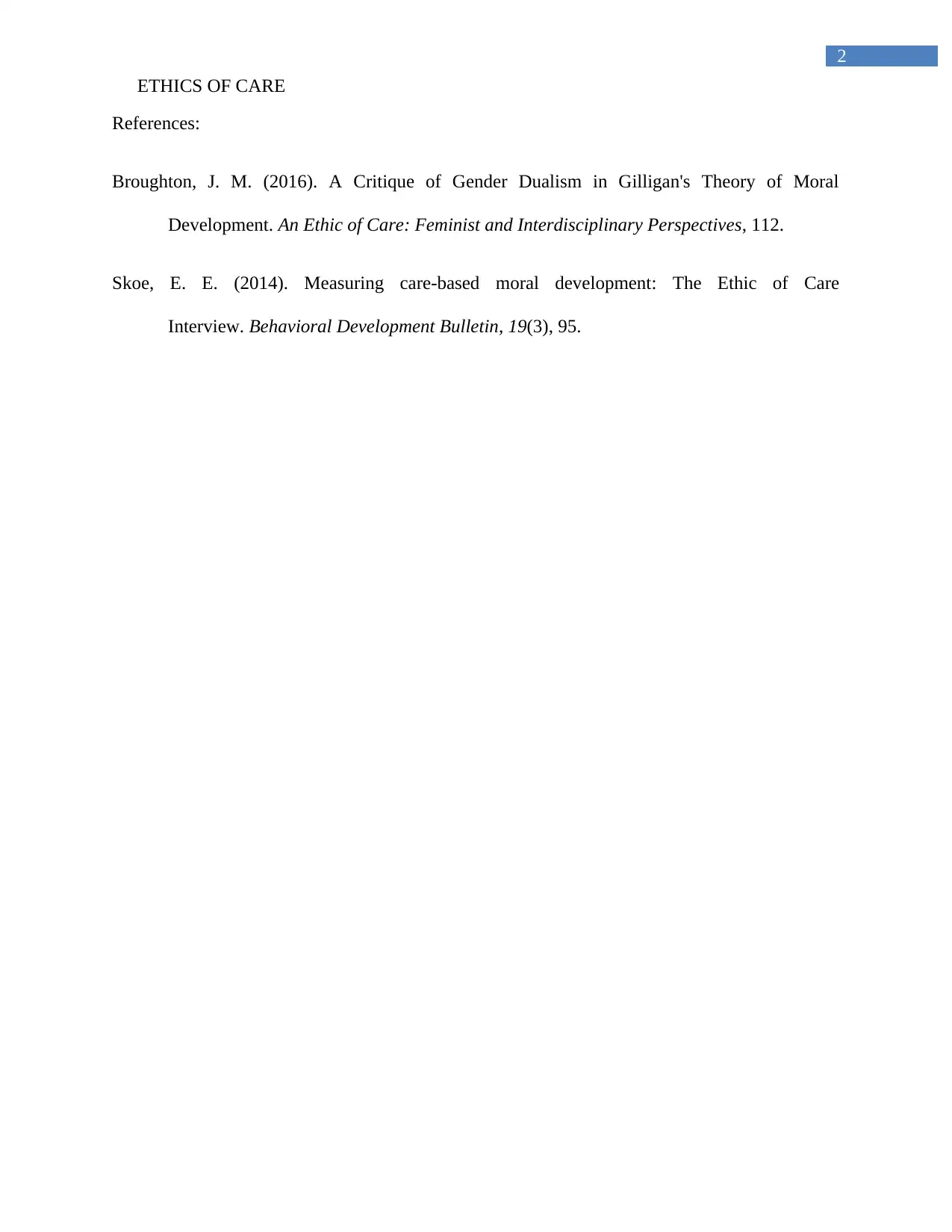Ethics of Care: Exploring Leadership, Gender, and Ethical Frameworks
VerifiedAdded on 2020/03/07
|3
|474
|102
Essay
AI Summary
This essay delves into the ethics of care in leadership, examining the perspectives of women in the workplace. It critiques the traditional patriarchal views that often misjudge women's leadership styles, highlighting the importance of collaborative approaches. The essay references Gilligan's theories on moral reasoning, contrasting them with Kohlberg's male-centric views, and discusses the different stages of women's moral development. Furthermore, it explores how the author's personal experiences reflect these concepts, illustrating how female characteristics contribute to successful task completion. The essay emphasizes the need to evaluate leadership effectiveness based on outcomes rather than gender-specific methodologies.
1 out of 3








![[object Object]](/_next/static/media/star-bottom.7253800d.svg)